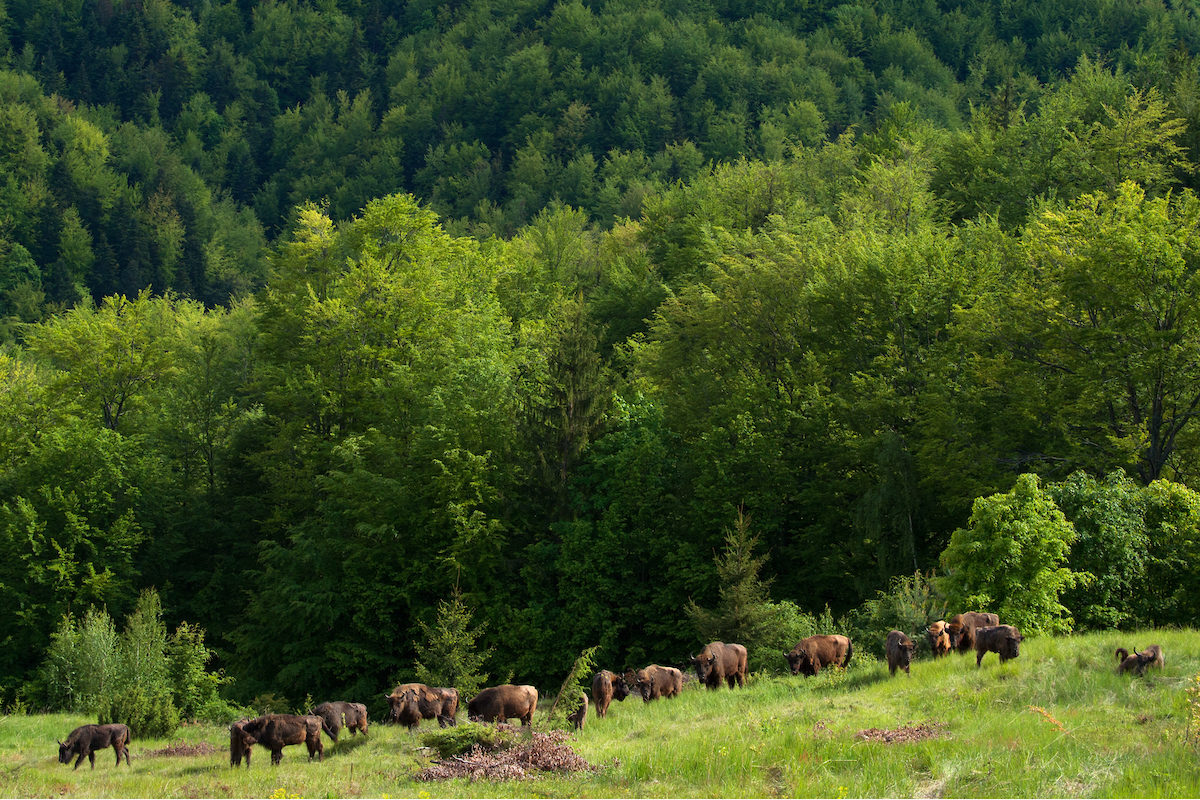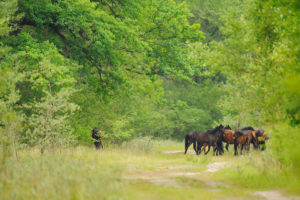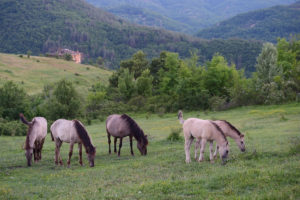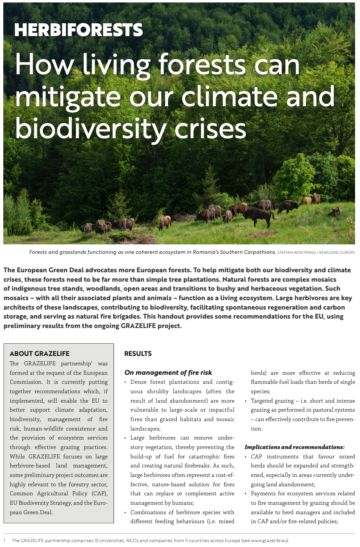Results from the ongoing GrazeLIFE project demonstrate that natural forests, complete with naturally occurring populations of free-roaming herbivores, can boost biodiversity and reduce the scale and impact of climate change. The EU should take account of this in all relevant strategy and policy going forwards.

Recommendations for change
The European Green Deal advocates more European forests. To help mitigate both our biodiversity and climate crises, these forests need to be far more than simple tree plantations.
Preliminary results from the ongoing GrazeLIFE project show that “living forests” – natural forests, complete with naturally occurring populations of free-roaming herbivores such as deer, bison and wild-living horses – could significantly mitigate our climate and biodiversity crises.
A newly published handout, distributed today at the International Conference on Forests for Biodiversity and Climate in Brussels, summarises these results and their implications. It also provides recommendations to the European Commission as to how such forests could be better supported in relevant EU policy and legislation.
The benefits of herbiforests

Natural forests are complex mosaics of indigenous tree stands, woodlands, open areas and transitions to bushy and herbaceous vegetation. Together with their populations of large wild herbivores, such living forests – or “herbiforests”, as the project team have labelled them – provide a diverse and cost-effective range of benefits.
Natural forest mosaics, with all their associated plants and animals, function as living ecosystems. Large herbivores are key architects of these ecosystems, contributing to biodiversity, facilitating spontaneous regeneration and carbon storage, and serving as natural fire brigades.
Whereas grasslands are sometimes more effective at long-term carbon sequestration than forests, natural forest mosaics (particularly old-growth forests) have large carbon storage capacities. A mosaic of forests and grassy vegetation, which is associated with extensive grazing by wild herbivores, also creates habitat heterogeneity and thereby boosts biodiversity.

Large herbivores can also represent a cost-effective, nature-based solution for wildfires, replacing or complementing active management by humans. Dense forest plantations and contiguous shrubby landscapes (often the result of rural depopulation) are more vulnerable to large-scale or impactful fires than grazed habitats and mosaic landscapes. Large herbivores can remove understory vegetation, preventing the build-up of fuel for catastrophic fires and creating natural firebreaks.
A unique opportunity
Rural depopulation is now taking place across large swathes of rural Europe, with an associated decline in the number of domesticated herbivores grazing the land. This trend offers a unique opportunity to recover complex forest ecosystems with herds of wild herbivores at a scale of many millions of hectares.
“The time is right to rethink the idea of merely planting trees and instead support the landscape-scale development of herbiforests,” says GrazeLIFE Project Manager Wouter Helmer. “Revised EU policy is critical in this regard, which is why the GrazeLIFE project partners are providing these recommendations.”
Rewilding Europe is already supporting the development of more natural forests – complete with large wild herbivore populations – in Portugal. Rewilding Europe Capital, Rewilding Europe’s enterprise loan facility, provided a loan to a Portuguese forestry company focused on natural forest development at the start of 2019, with the aim of scaling up this business model in the years ahead.
Wide-ranging relevance

To fully seize the opportunity and maximise the benefits of living forests, support for their development and management needs to be provided at scale. While the GrazeLIFE project focuses on large herbivore-based land management, some preliminary project outcomes are highly relevant to the forestry sector, Common Agricultural Policy (CAP), EU Biodiversity Strategy and European Green Deal.
Based on project results, the new handout provides recommendations as to how such policies and strategies should be modified going forwards. The European Union’s CAP, for example, already contains instruments that can support extensive and sustainable grazing, as well as the better management of forests. But these will require sharpening and expansion if they are to operate more effectively and efficiently.
Progressive project
Coordinated by Rewilding Europe, the three-year, European Commission-funded GrazeLIFE project began at the start of 2019. Its aim is to evaluate the benefits of various land management models involving domesticated and wild/semi-wild herbivores, and to provide recommendations to the Commission that will enable the development of more supportive EU policy and legislation.
Additional funding has also been provided by the Arcadia Fund, the UK based charitable trust of Lisbet Rausing and Peter Baldwin.
Project work is being carried out in eight regions (encompassing eleven European countries: Spain, Portugal, Lithuania, the Netherlands, Belgium, Croatia, Ukraine, Romania, Germany, Poland and Bulgaria). Project beneficiaries are Rewilding Europe, University of Leipzig, Baltic Environmental Forum, ARK Nature, University of A Coruna, Rewilding Ukraine and Rewilding Rhodopes Foundation.
Want to know more?
